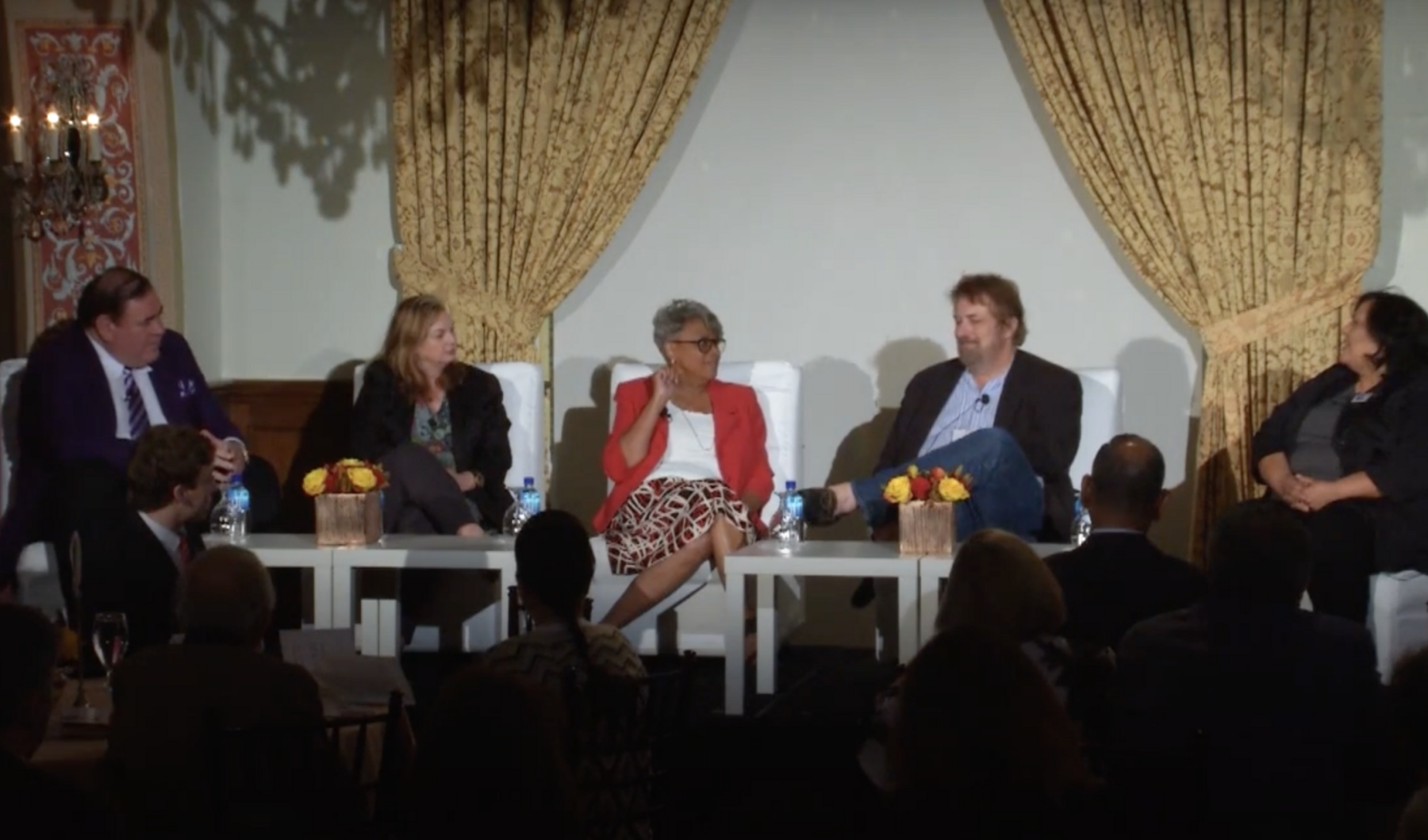
Educational Engagement: Gaming, Music and Sports
A panel of five got together last May for the EDGE Engagement Fishbowl to discuss the importance of youth engagement.
The panel consisted of David Baker, CEO for Pro Football Hall of Fame, Margaret Batjer, Concertmaster for LA Chamber Orchestra, Flint Dille, Creative Lead for Niantic Labs & Designer, and Monica García, LAUSD Board Member. The panel was led by Reveta Bowers, National Chair of Common Sense Media and Chair for Rossier Board of Councilors.
The panel of a diverse group of experts had no problem pinning the importance of teamwork.“You can’t be on a team without engaging someone else. Everyone has a role. It’s all about inclusion; how I get the most out of myself and how I help the person next to me get the most out of themselves,” Baker declared.
García echoed these sentiments, proclaiming “it’s important that love and learning go together.”
In addition to the teamwork necessary for today’s youth to engage, several of the panel members spoke to the “feel” that personal success in your feel should bring.
“We work so hard in our team effort to create a wonderful performance. But at the end of the day, it is never about the technical aspect of what we do, it’s about how we make people feel,” Batjer expressed.
Whether it be through music or through technology, this sentiment is one shared heartily by the panel members.
“Every time I’ve had a good product, whether I’m playing it or I’m making it, I get the tingle. That tingle is what you want to give. Tying the tingle together with something that is advancing you, that’s the ultimate nirvana,” Dille explained.
No matter the field of interest, nor the plan for getting youth engaged, Bowers had one message to leave us with.
“We’re developing a whole generation of children who are a little bit risk adverse. And the silos in which we currently exist are problematic because it keeps us from engaging with one another. And yet, that’s what education is. It’s engagement and breaking open the doors of those silos and creating environments in which we can truly take risks, fail, thrive from those failures, and understand the learning paradigm, that the next risk we take we will have learned from the risk we just finished,” Bowers concluded.